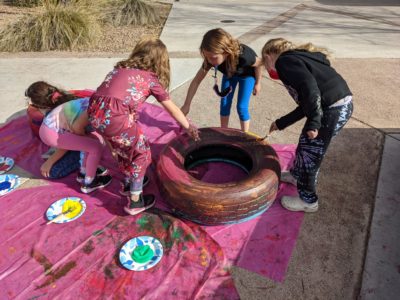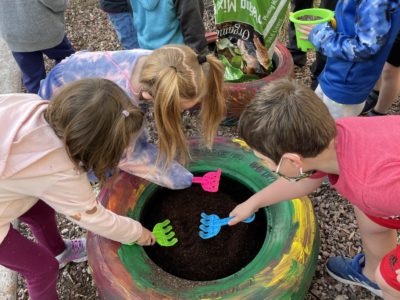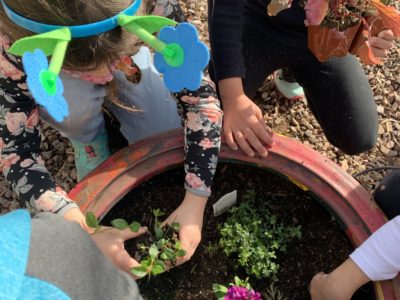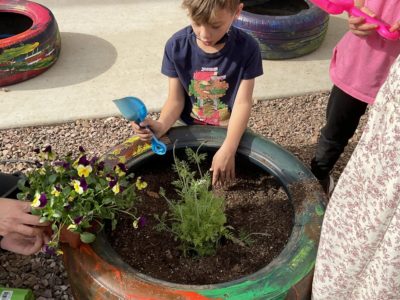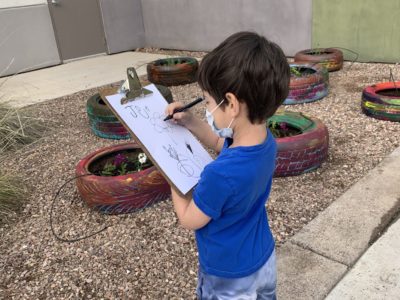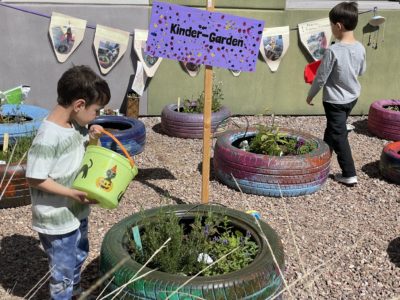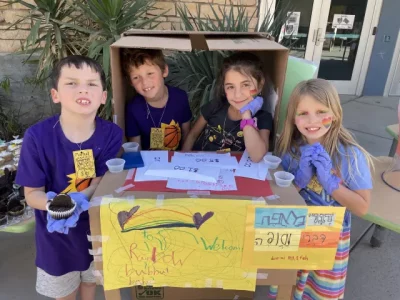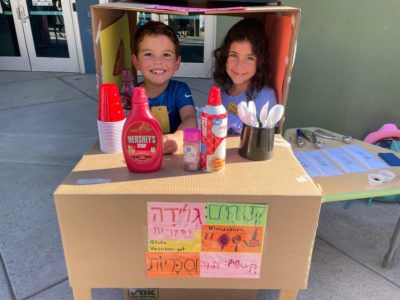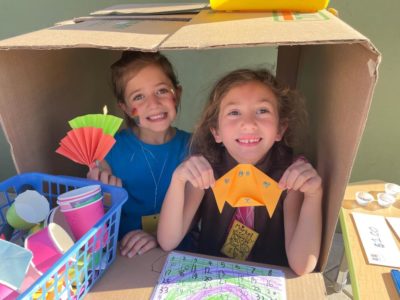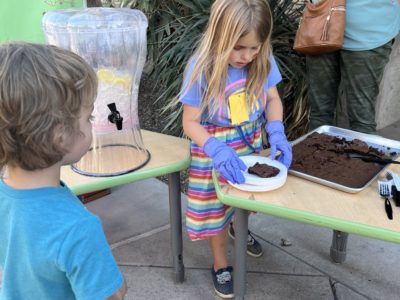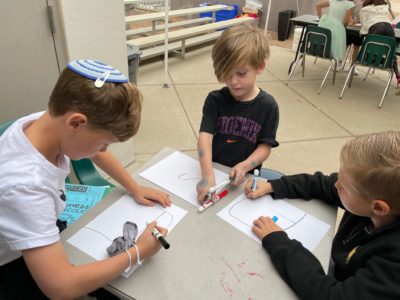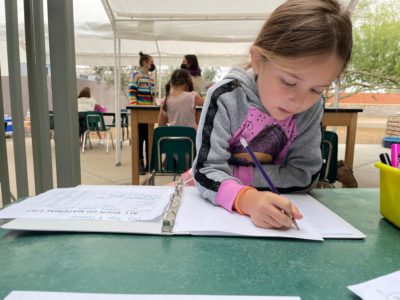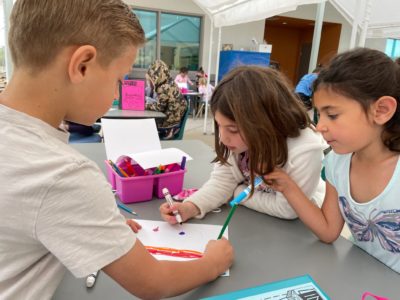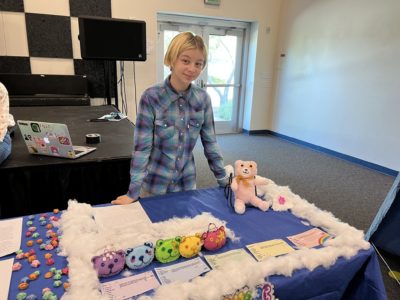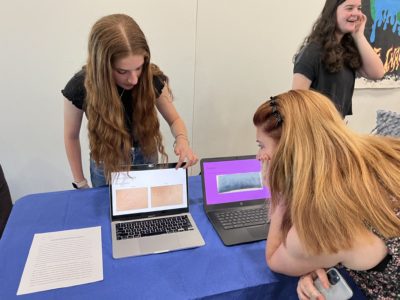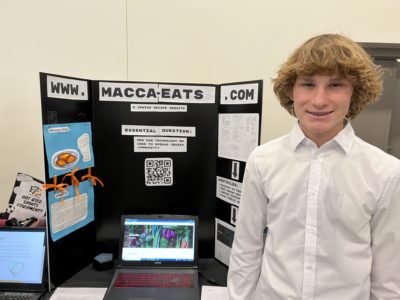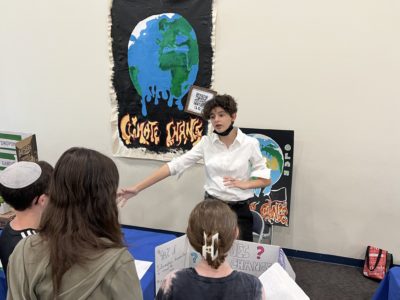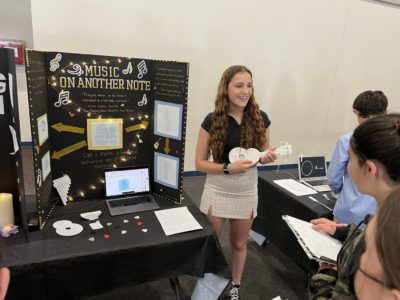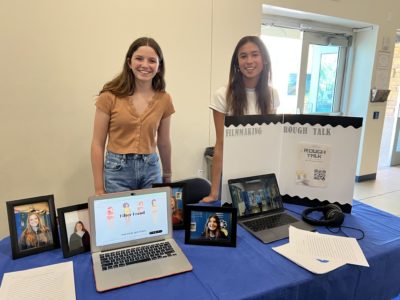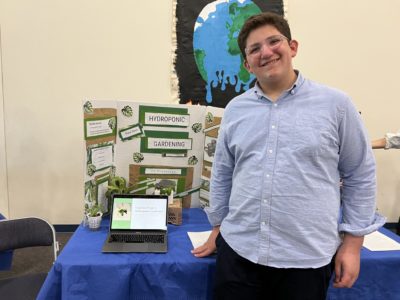Project-Based Learning
What it is and why it matters for your child
Project-Based Learning (PBL) is Pardes Jewish Day School’s innovative approach to teaching children at every grade level. When students are constantly engaged in meaningful projects, they develop an authentic love for learning. It is a transformative experience that promotes deep learning and fosters a sense of purpose in every child.
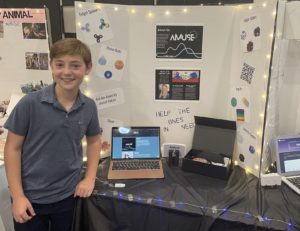
What is Project-Based Learning?
In a traditional classroom, students may work on a couple of hands-on projects each semester. These are viewed as “special” experiences, and are typically short-term in nature.
Project-Based Learning at Pardes allows students to work on projects regularly, many of which span over an extended period of time, from one week to an entire semester. With PBL, the project is the vehicle for learning and not something they do at the end of learning to prove understanding. It is process over product.
What Project-Based Learning Looks Like in Action:
Kindergarten
After considering the driving question “What kind of environment can we create to explore our five senses?” our kindergartners came up with the idea of creating a garden. They painted car tires as our planters with the art teacher and planted various plants with their teachers. They diligently tended the garden. As the carrot, lavender, and mint plants grew, the students kept a journal and reflected on their observations. Initially they explored the senses of smell, touch, and sight with their garden. Later in the process they were able to taste various plants and they added wind chimes that they made during Makerspace. Our facilities manager added a self watering system for evenings and weekends and a fence to keep the little critters from eating the plants. The kindergartners took great pride in their Kinder-Garden!
Lower School
In the First Grade “All Shuk Up” Project Based Learning, students designed their own shuk (market) booths. In small groups, they determined the necessary budget and created the items sold in their booth. Booths included tie-dye, pottery, pizza, stuffed animals, cupcakes and much more! Students worked in their first grade classroom as well as in Hebrew class, art, and Makerspace to prepare for their PBL Showcase. Family members enjoyed shopping at the First Grade Shuk with pretend money.
Middle School
After months of research and preparation, the eighth grade held the inaugural Eighth Grade Capstone Project Symposium. Students presented their projects, which attempted to answer an essential question that reflected both global and local issues, as well as the core value of Tikkun Olam. They showcased fully-realized prototypes and research papers on their issues. It was impressive to see their presentations as they engaged in conversations with parents, students, and administrators.
Students Exposed to Project-Based Learning:
- Become motivated and invested through active engagement
- Have a broad, deep understanding of the world
- Make connections between subjects
- Think critically and creatively
- Communicate and collaborate with others
- Create, evaluate, and utilize information
- Are career-ready and prepared for life
The Why Behind Our Approach
It all comes down to student engagement. When students are actively engaged, they are more invested, they learn the content, and they build the important skills of critical thinking, collaboration, creativity, and communications. The energy inside a Project-Based Learning classroom is contagious and fosters a sense of purpose in every child.
Our rigorous, project-based curriculum emphasizes the development of self-directed learners. The work of “school” becomes authentic, relevant, and subsequently engaging. Learning extends beyond the walls of the classroom and across time and place.
A Proven Approach for Every Age and Stage
Whether you have a kindergartner or a teen, Project-Based Learning is extremely beneficial. In the early years, we want our students to focus on the learning process rather than solely focusing on getting the “right” answer. The project-based process of learning through asking questions and trying out different solutions creates a foundation of valuable skills that serve our youngest learners throughout their entire educational journey. As students move toward middle school and high school, the project-based approach encourages ownership over learning and time management. At Pardes, our middle schoolers develop a broad, deep understanding of the world and are encouraged to think about how they are going to be active, engaged citizens.


